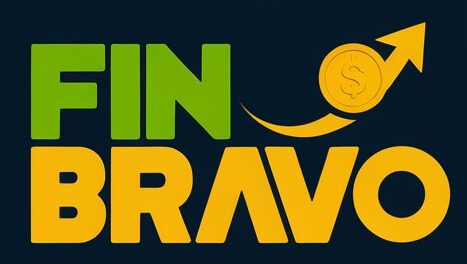Introduction
Tired of the 9-to-5 grind? Dreaming of making solid cash while working on your own terms? Well, freelancing as a developer might just be your golden ticket.
With tech booming and businesses scrambling for skilled coders, now’s the perfect time to break free and start raking in $3,000 (or more) a month from the comfort of your laptop.
But hold up—this isn’t some get-rich-quick scheme.
You need a strategy, the right skills, and a game plan to make this work.
Whether you’re a coding newbie or a seasoned dev looking to make the leap into freelancing, I’ve got you covered.
Let’s dive into how you can turn your coding skills into a reliable, high-paying side hustle (or even a full-time gig!).
1. Master In-Demand Programming Languages
To stand out in the freelance market, it’s crucial to be proficient in programming languages that clients are actively seeking.
While many languages are valuable, focusing on those with high demand can significantly boost your earning potential.
JavaScript is a prime example. As the backbone of web development, it’s used extensively for creating interactive website elements.
Its versatility allows developers to work on both front-end and back-end projects, making it a staple in many tech stacks.
Python is another language worth mastering.
Known for its simplicity and readability, Python is widely used in web development, data analysis, artificial intelligence, and more.
Its broad applicability means a wide range of freelance opportunities.
Ruby on Rails, a robust web application framework, is also in demand.
It emphasizes convention over configuration, allowing developers to build applications quickly and efficiently.
Many startups and established companies alike seek developers skilled in Ruby on Rails for their projects.
By honing your skills in these languages, you position yourself to attract a diverse array of clients, thereby increasing your chances of securing consistent, well-paying gigs.
2. Build a Portfolio Showcasing Your Best Work
A compelling portfolio is your ticket to attracting potential clients.
It serves as tangible proof of your skills and experience, making it easier for clients to trust you with their projects.
Start by including a variety of projects that highlight your expertise across different areas.
For instance, showcase a dynamic e-commerce site you’ve built using JavaScript, a data analysis tool developed with Python, or a sleek web application crafted with Ruby on Rails.
Each project should demonstrate your ability to solve problems and deliver high-quality results.
In addition to the projects themselves, consider adding brief case studies that outline the challenges you faced, the solutions you implemented, and the outcomes achieved.
This narrative approach provides context and shows clients your problem-solving process.
Remember, quality trumps quantity. It’s better to have a few well-executed projects than a plethora of mediocre ones.
Regularly update your portfolio to reflect your latest work and ensure it aligns with the types of clients you aim to attract.
3. Leverage Freelance Platforms to Find Clients
Freelance platforms are a goldmine for connecting with clients seeking developers.
Websites like Upwork, Freelancer, and Fiverr host a plethora of job postings catering to various skill levels and specialties.
To stand out on these platforms, create a profile that highlights your expertise, experience, and unique selling points.
Use a professional photo, craft a compelling bio, and list your skills prominently.
Client testimonials and reviews can also bolster your credibility.
When bidding on projects, tailor your proposals to each client’s specific needs.
Demonstrate that you’ve read their project description thoroughly and explain how your skills make you the ideal candidate.
Personalized proposals show clients that you’re genuinely interested in their project, increasing your chances of landing the gig.
While these platforms can be competitive, persistence and a strategic approach can lead to a steady stream of clients and income.
4. Network Within the Developer Community
Building relationships within the developer community can open doors to opportunities you might not find elsewhere.
Networking can lead to collaborations, referrals, and insights that can enhance your freelance career.
Attend local meetups, workshops, and conferences related to web development and programming.
These events provide a platform to meet like-minded professionals, share knowledge, and discuss potential collaborations.
Engaging in these communities can keep you informed about industry trends and client needs.
Online communities are equally valuable.
Participate in forums like Stack Overflow, join relevant Reddit communities, or engage in discussions on LinkedIn.
Sharing your expertise and helping others can establish you as a knowledgeable and reliable professional, attracting potential clients.
Remember, networking is about building genuine relationships.
Offer value, be authentic, and opportunities will naturally follow.
5. Set Competitive Rates and Manage Your Finances
Determining your rates is a critical aspect of freelancing.
Pricing yourself appropriately ensures you’re compensated fairly while remaining attractive to potential clients.
Research the average rates for developers with similar skills and experience.
Consider factors like the complexity of the project, the client’s budget, and the value you bring to the table.
It’s essential to strike a balance between competitiveness and fair compensation.
Once you’ve established your rates, effective financial management is key to maintaining a steady income.
Set aside funds for taxes, track your expenses meticulously, and consider investing in accounting software to streamline this process.
Additionally, plan for periods of low workload by building a financial cushion.
Freelancing can be unpredictable, and having savings can provide peace of mind during slower months.
By setting competitive rates and managing your finances wisely, you can achieve and sustain your goal of earning $3,000 per month as a freelance developer.
Conclusion
Embarking on a freelance developer career offers the flexibility to work on diverse projects and the potential to earn a substantial income.
By mastering in-demand programming languages, showcasing your best work, leveraging freelance platforms, networking within the community, and managing your finances effectively, you can build a thriving freelance business.
Start today, and take control of your professional journey.
